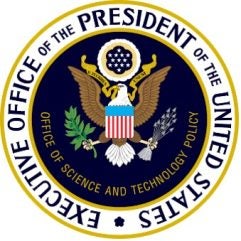
The US has revealed a new framework for the nuclear sector identifying more than 30 actions the government can take, along with industry and power customers, to help expand nuclear capacity. The targets are also meant to align with last year’s pledges at COP 28 to triple global nuclear capacity by 2050 and to secure a nuclear fuel supply chain free from Russian influence.
The domestic nuclear energy deployment targets are part of an ambitious, first-of-its-kind framework outlining actions that the government can take to safely and responsibly expand nuclear energy capacity in the United States.
The US aims to deploy 200 GWe of net new nuclear energy capacity by 2050, at least tripling current US capacity. The new capacity gains are anticipated to come from multiple sources, including building new NPPs, uprating existing reactors, and restarting reactors that have retired for economic reasons.
The White House Office of Science and Technology Policy (OSTP) says this long-term target will be enabled by achieving the following nearer term targets:
- Jumpstarting the nuclear energy deployment ecosystem with 35 GWe of new capacity by 2035 that will be operating or under construction in the US.
- Accelerating the capability of the nuclear energy deployment ecosystem by ramping to a sustained pace of producing 15 GWe a year in the US by 2040, in support of both domestic and global project deployments.
These targets reflect ambitious but achievable goals to serve as a call to action for the nuclear energy industry and signal that the government “is working and will continue to work to facilitate the safe and responsible deployment of nuclear energy and related infrastructure and job creation”. The targets aim to restore and exceed the US nuclear energy industry’s deployment capacity decades ago. “Achieving these targets into a new era of nuclear energy deployment will require active collaboration among all public and private stakeholders in the domestic and international nuclear power sector.” Expanding nuclear energy capacity in accordance with these targets will:
- Generate hundreds of thousands of sustainable, good-paying jobs in the US;
- Strengthen domestic nuclear energy supply chains and American manufacturing;
- Enhance energy reliability, grid resilience, and affordability;
- Support the goal of achieving a net-zero emissions economy by no later than 2050; and
- Reinforce American leadership and global competitiveness in nuclear energy technology and innovation.
The framework establishes a set of guiding principles for successfully scaling up nuclear energy “in a manner that advances core values and commitments, including ensuring public health and safety protecting the environment, ensuring energy affordability, meaningfully engaging with communities and delivering local community benefits, honouring Tribal sovereignty, advancing environmental justice, and promoting national security”.
The Administration’s framework for safely and responsibly expanding nuclear energy builds on existing efforts by the Department of Energy, Nuclear Regulatory Commission, Department of Defence, and other agencies by outlining actions that the government can take, within existing statutory authorities to expand nuclear energy, in collaboration with the private sector and power customers. This framework outlines over 30 specific actions across nine key pillars:
- Building new large, gigawatt-scale reactors
- Building small modular reactors (SMRs)
- Building microreactors
- Extending and expanding existing reactors, through license renewals, power uprates, and restarting recently retired reactors
- Improving licensing and permitting
- Developing the workforce
- Developing component supply chains
- Developing fuel cycle supply chains
- Managing used nuclear fuel
“Recognising the urgency of acting to combat the climate crisis, as well as the economic and national security benefits of investing in a broad scope of American climate solutions, the US government is working to responsibly deploy domestic nuclear energy in line with our core values.” At the same time, the framework “recognises the importance of tackling the harms of past domestic nuclear programmes, including by investing in and prioritising the clean-up of abandoned uranium mine waste in local communities and on Tribal lands”. To help achieve these objectives and inform implementation of this Framework, the Administration is launching Tribal consultation and will issue a Request for Information seeking public comment.






